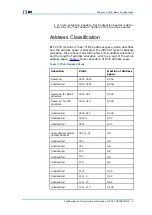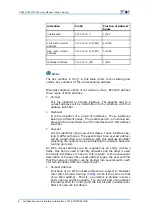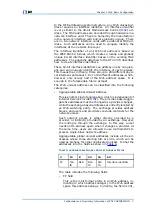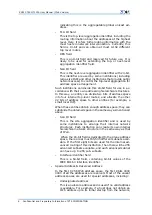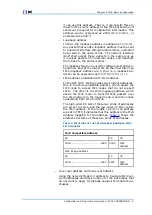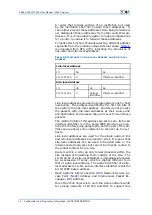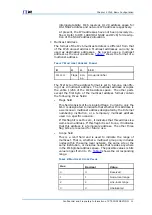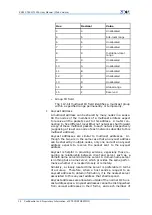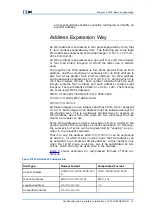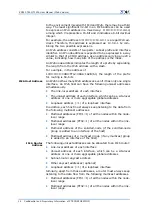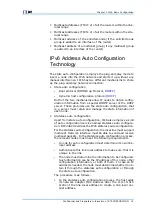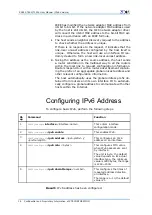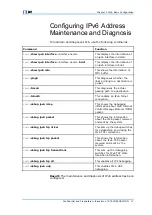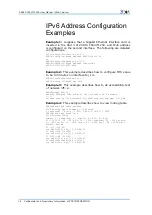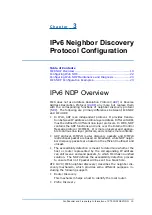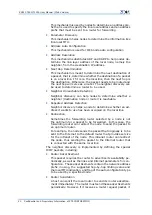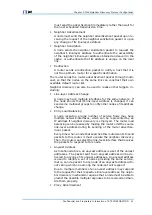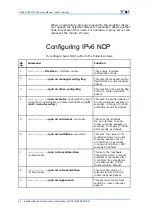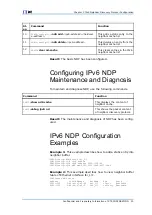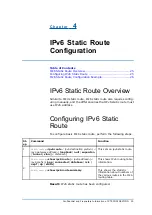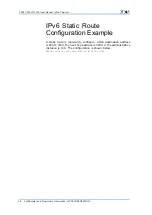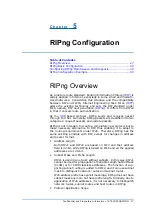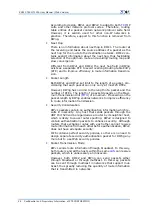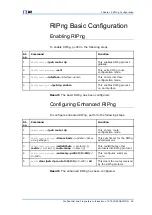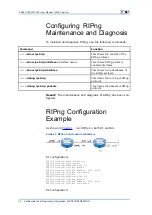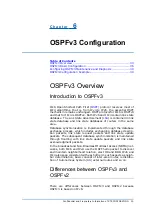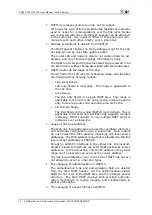
C h a p t e r
3
IPv6 Neighbor Discovery
Protocol Configuration
Table of Contents
IPv6 NDP Overview............................................................19
Configuring IPv6 NDP.........................................................22
Configuring IPv6 NDP Maintenance and Diagnosis ..................23
IPv6 NDP Configuration Examples ........................................23
IPv6 NDP Overview
IPv6 does not use Address Resolution Protocol (
) or Reverse
Address Resolution Protocol (
) any more but replace them
with the corresponding functions of neighbor discovery protocol
(
). The following are primary differences between IPv6 NDP
and IPv4 ARP.
�
In IPv4, ARP is an independent protocol. It provides transla-
tion between IP address and link-layer address. Different ARPs
must be defined for different link-layer protocols. In IPV6, NDP
contains the ARP functions and runs over the Internet Control
Message protocol (ICMPv6). It is more universal and applica-
ble to various link-layer protocols, and contains more contents.
�
ARP protocol, ICMPv4 router discovery packets and ICMPv4
redirectional packet are based on broadcast, while NDP neigh-
bor discovery packets are based on the efficient multicast and
unicast.
�
The accessibility detection is meant to determine whether the
host or router represented by the corresponding IP address
can still receive and send packets, to which IPv4 has no unified
solution. The NDP defines the accessibility detection process
to ensure that no IP packet will be sent to a black hole.
RFC 1970 (IPv6 neighbor discovery) describes the neighbor dis-
covery mechanism, which provides some different purposes, in-
cluding the following support.
�
Router Discovery
This mechanism helps a host to identify the local router.
�
Prefix Discovery
Confidential and Proprietary Information of ZTE CORPORATION
19
Summary of Contents for ZXR10 T1200
Page 5: ...Figures 71 Tables 73 List of Glossary 75 ...
Page 6: ......

